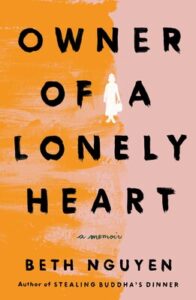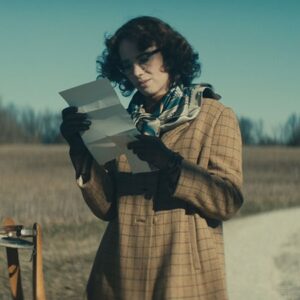Beth Nguyen on Taylor Swift, Edith Wharton, and Creating a Double Perspective
"What do we reveal and what do we keep to ourselves, and for what reasons?"
The following is a revised excerpt from a panel presentation at the 2023 Association of Writers and Writing Programs (AWP) conference. It first appeared in Lit Hub’s Craft of Writing newsletter—sign up here.
In the fall of 2021, when Taylor Swift released the ten-minute version of her song “All Too Well,” I was working on my memoir Owner of a Lonely Heart and rereading Edith Wharton’s novel The Age of Innocence. I didn’t know the original version of Swift’s song from 2012, but I played the long version dozens of times on repeat in between hours of writing. It took me a while to understand why: “All Too Well,” which is apparently about a brief, long-ago relationship with Jake Gyllenhaal, is also about retrospective narration and double-perspective, concepts that I’ve been fairly obsessed with because they can also govern how time is managed in a text.
“Double perspective” is a term from Phillip Lopate, that I’ve found to be crucial in thinking about nonfiction. It’s about how every narrative has a double perspective because the now-narrator is always looking back at a prior self, whether that self was yesterday or twenty years ago. Or in other words, the now-narrator is always looking from an angle that is informed and shifted by time itself, and thus the narration — the perspective — of an event or memory changes as distance increases between our past selves and our current selves.
“All Too Well” relies on double perspective to guide and shape the narrative. The song begins in scene: the narrator and her boyfriend walk into a house. A moment later, the key line “I left my scarf there, at your sister’s house” pulls the perspective back; the now-narrator is not just describing what the former self did, she is instigating the stance of remembrance. She then pulls perspective back even more: “And you’ve still got it, in your drawer, even now.” Is this a claim? An accusation? A statement of knowledge? Whatever the answer, the now-narrator is not just looking back at what happened, she is also directing present-day consequences.
I would argue that “All Too Well” is not just a song, but a memoir-essay that has become a public document in which a powerful perspective effectively defines the public narrative of what happened. The refrain “I was there, you were there, you remember it,” becomes an insistent implication. In the narrative arc of the song, the guy might have broken up with her, but he’s the one who ends up losing.
Part of the responsibility involved in memoir is understanding our own motivations in it. What do we reveal and what do we keep to ourselves, and for what reasons? How do we take responsibility for the singular perspective of memoir? Was Taylor Swift writing from a position where her agency and authority were questioned or denied? Maybe it doesn’t seem like it right now, but what about when she was 20 years old and dating a 29 year old man?
On Twitter, the discourse around “All Too Well” seemed to assume the song was truth, rather than perspective. Celebrities were tweeting at Jake Gyllenhaal to return that scarf. As I always say to students: social media is a form of creative nonfiction.
Some of us love looking back so much that we make an art of it. Looking back is a mood, a reckoning, a constant rethinking. “All Too Well” is steeped in this mood. There is a courting of nostalgia and of its cooler siblings, melancholy and wistfulness. Because what if you could take control of the past by taking control of the narrative? It would, perhaps, neutralize the past pain. It would, perhaps, be a form of resolution. The possibility is delicious and maybe a little bit dangerous.
Part of the responsibility involved in memoir is understanding our own motivations in it. What do we reveal and what do we keep to ourselves, and for what reasons?Which brings me to The Age of Innocence, a masterpiece of narrative and time management that I keep studying, to learn how to manage these better in my own work. (Apologies: spoiler ahead.) Though we know from the novel’s opening that we are looking back on the Gilded Age of old New York, the meaningfulness of that time gap becomes a revelation near the end of the book, when we shift from the “room in which the real things of Newland Archer’s life” happened, where his wife let him know she was pregnant with their first child, to that same room years later, when his son calls on the new-fangled telephone. For me, the deep emotional and narrative satisfaction of this novel comes from the fact that the protagonist gets so little of it. Meanwhile we readers get to see the missed chances and contemplate the idea of regret; we imagine a sense of return.
“What happened and where are they now” are questions at the core of so many stories and versions of stories. They can bring us into the past and up to the present in nearly the same moment so that we are two selves, looking back and looking forward, filling us with wonder and desire and possibly, if we’re lucky, a sense of wisdom. Double perspective is a double haunting. It’s a craft choice. It’s a matter of time and timing. It’s Newland Archer in Paris, looking up at a set of windows, deciding what he’s going to do after years of silence. It’s Taylor Swift saying I was there, you were there, you remember it. It’s all of us who are trying to write down, trying to understand, the long past that keeps getting longer.
________________________________________________

Owner of a Lonely Heart by Beth Nguyen is available now via Scribner.




















